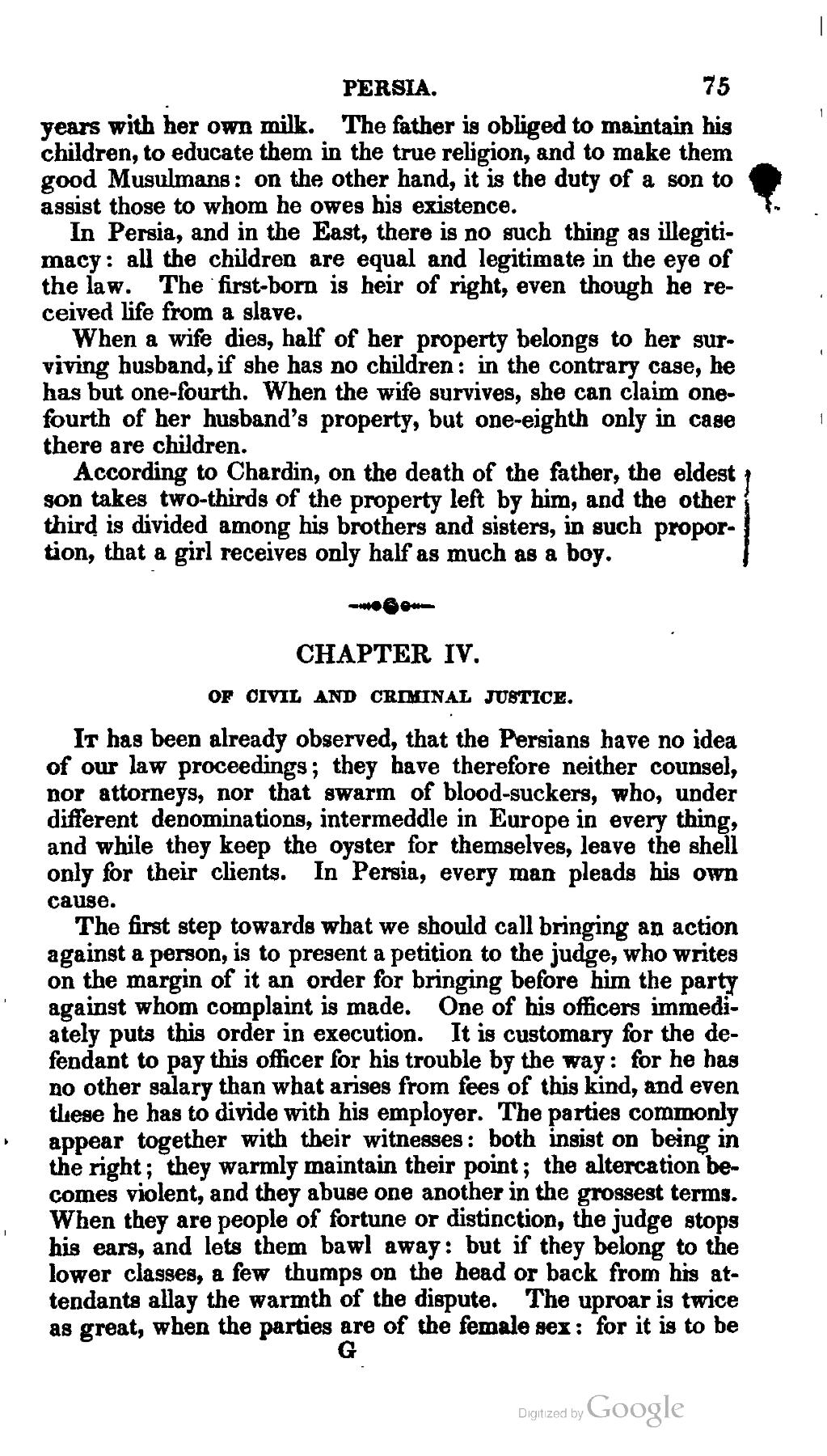years with her own milk. The father is obliged to maintain his children, to educate them in the true religion, and to make them good Musulmans: on the other hand, it is the duty of a son to assist those to whom he owes his existence.
In Persia, and in the East, there is no such thing as illegitimacy: all the children are equal and legitimate in the eye of the law. The first-born is heir of right, even though he received life from a slave.
When a wife dies, half of her property belongs to her surviving husband, if she has no children: in the contrary case, he has but one-fourth. When the wife survives, she can claim one-fourth of her husband's property, but one-eighth only in case there are children.
According to Chardin, on the death of the father, the eldest son takes two-thirds of the property left by him, and the other third is divided among his brothers and sisters, in such proportion, that a girl receives only half as much as a boy.
CHAPTER IV.
OF CIVIL AND CRIMINAL JUSTICE
It has been already observed, that the Persians have no idea of our law proceedings; they have therefore neither counsel, nor attorneys, nor that swarm of blood-suckers, who, under different denominations, intermeddle in Europe in every thing, and while they keep the oyster for themselves, leave the shell only for their clients. In Persia every man pleads his own case.
The first step towards what we should call bringing an action against a person, is to present a petition to the judge, who writes on the margin of it an order for bringing before him the party against whom complaint is made. One of his officers immediately puts this order in execution. It is custom for defendant pay this officer for his trouble by the way: for he has no other salary than what arises from fees of the kind, and even these he has to divide with his employer. The parties commonly appear together with their witnesses: both insist on being in the right; they warmly maintain their point; the altercation becomes violent, and they abuse one another in the grossest terms. When they are people of fortune or distinction, the judge stops his ears, and lets them bawl away: but if they belong to the lower classes, a few thumps on the head or back from his attendants allay the warmth of the dispute. The uproar is as twice as great, when the parties are of the female sex: for it is to be

